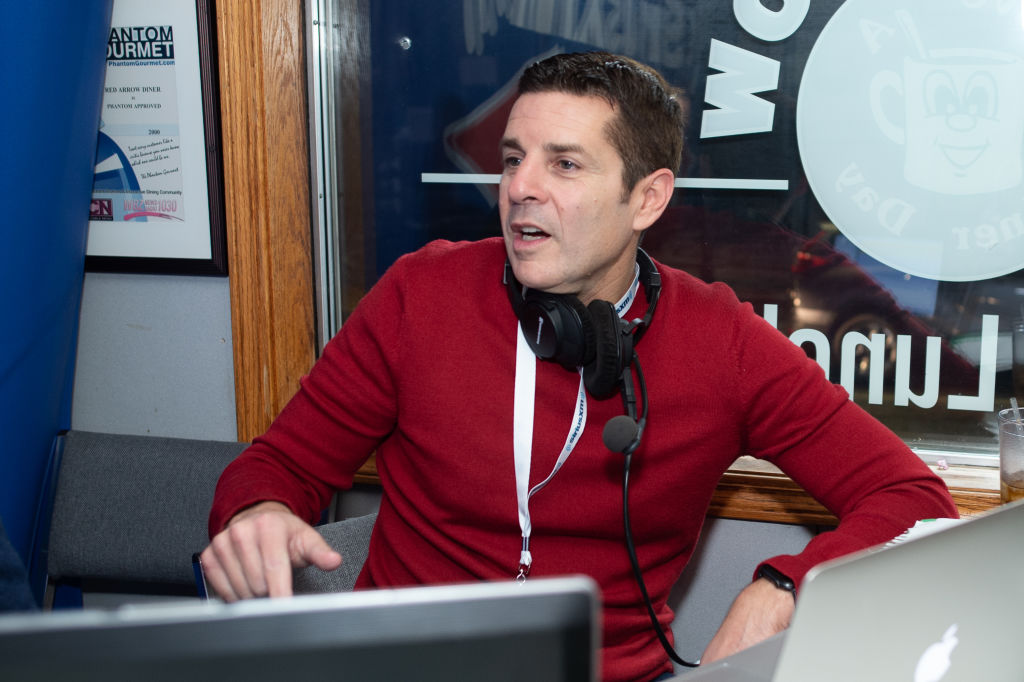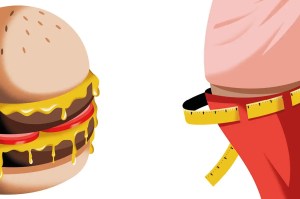Dean Obeidallah has an impressive résumé. While he is not a household name, the lawyer-turned-award-winning-comedian hosts a satellite radio program, is a frequent guest on MSNBC and CNN, and has written for all the big publications. But while he has good chops for a progressive pundit, he is no Abraham Lincoln.
It shows. Far from emulating the tone taken by the Great Emancipator, Obeidallah prefers to fan the flames of political disunity. In a recent tweet, for example, he wrote that he does not believe that a civil war is coming because ‘the Civil War in 1861 happened when Red States said we are leaving and Blue States waged a war to preserve the Union. Today if Red States wanted to leave Blue states would say “Check out time is 1 p.m.”’
That tweet is preposterous! First of all, anyone who doesn’t have his own national radio show knows that checkout always comes before 1 p.m. I will even let slide the one-to-one correlation of contemporary politics with those of the 1860s, save to say that it is a lazy and uninformed comparison. (Know this, every guy in every online argument who triumphantly declares that ‘the politics of the two parties have changed and now the Republicans are the bad guys’: we see you. Your argument isn’t as clever as you think. Books are available for cheap on Amazon and for free at your local library.)
More importantly, though, Obeidallah acts as though preserving the Union was a mere matter of preference as opposed to one of material and philosophical necessity. The denizens of red states with their guns and their NASCAR and their Trump have finally overstayed their welcome, the logic goes, and so we are done with them. People who make arguments like Obeidallah’s often assert that the blue states would be fine on their own because they are economically powerful.
It is hard to imagine, however, that in a time of strife, the entertainment and finance industries would continue to be good earners. It’s even harder to imagine that ‘political comedian’ is a job description that would lend itself to, say, establishing an agricultural base outside of California or repairing a small engine. I think a better and more mutually beneficial arrangement is this: we stay together. You keep giving us prestige dramas, we keep giving you grains.
Beyond this material co-dependence, Americans are existentially bound. We were founded as a union through consent of the governed. It logically follows that such a bond cannot be shattered — whether voluntarily or through war — without that same consent. Whatever its virtues, the argument that Americans should split like departing hotel guests is not an American argument.
Support for former President Trump seems to be the flashpoint between the states today, or at least it’s a useful stand-in for a whole host of political, economic, and social issues. To point out that these differences come nowhere close to the moral reprehensibility of the previous flashpoint, slavery, is to commit a serious understatement. And yet this is how Lincoln treated slaveholder states in his second inaugural address:
‘If we shall suppose that American slavery is one of those offenses which in the providence of God must needs come but which having continued through His appointed time He now wills to remove and that He gives to both North and South this terrible war as the woe due to those by whom the offense came shall we discern therein any departure from those divine attributes which the believers in a living God always ascribe to Him.’
In other words, Lincoln believed that God’s judgment for slavery belonged to all of us. We bore a common moral culpability. We were one nation, and we had sinned together in supporting and tolerating slavery for so long, and in failing to end that institution without avoiding war. We couldn’t just part and be done with it. We certainly can’t do so over lesser matters today.
Some of Obeidallah’s other viewpoints are even more acidic. He tweeted in support of his latest CNN article that ‘Today’s GOP is how democracies die — and it’s all because of Terrorist Trump!’ In case that one was too understated, he also tweeted, ‘If you ever wondered what it was like to live in early 1930’s Germany you are getting a taste of it courtesy of Trump and the GOP.’ Still a little subtle for your taste? He offered that ‘the GOP is no longer a political party — it’s an openly fascist movement. That is undisputed.’
This kind of talk is not only silly — I suspect that about half of American voters and a good bit of those with sense from the other side really would dispute his characterization of the GOP — it’s also dangerous and immoral. If Republicans are equivalent to Nazis, why shouldn’t they be deprived of their life and liberty?
Obeidallah might not be Lincoln. In fact, vanishingly few of us have the rhetorical and intellectual gifts of our 16th president. But that doesn’t mean he can’t read Lincoln. A good starting point would be the February 22, 1842 address that a young Lincoln delivered to a temperance society in Springfield, Illinois. Ostensibly, the speech was about effective tactics for combatting the sale and consumption of alcohol, but it’s clear that Lincoln was using that only as a frame for the larger issues of the day.
Lincoln warned that when alcohol drinkers and sellers were told ‘that they were the authors of all the vice and misery and crime in the land’, they were closed off to the message of temperance. ‘When the conduct of men is designed to be influenced,’ he said, ‘persuasion, kind, unassuming persuasion, should ever be adopted.’ Even if we think kind persuasion is a bridge too far, we might at least cool our rhetoric since we’re going to be living with each other for a while.
Bill Zeiser is the editor of RealClearPolicy.


















